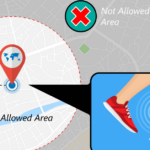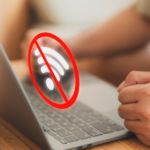What Does the Law Say About Impersonating a Police Officer?

How do you know if you were dealing with a real cop?
Although flashing lights, sirens, the uniform or police badge may all be signs you are dealing with the police, you may not necessarily be.
While police may often be jokingly associated with donuts, this was not the case for one donut store in Florida.
A long-time customer desperate for some cheap donuts actually impersonated a police officer, complete with ID and a real gun in order to get discounts.
But the staff weren’t fooled. The man was a regular in Dunkin’ Donuts until he was told by staff that he was taking advantage of their discount system and would no longer be given discounts.
After he returned with a real gun and a ‘police’ badge, the store notified police.
During his third attempt, police apprehended him and he went to jail hungry.
But not all police impersonators have benign motivations, like getting cheaper donuts.
Fake police uniforms and badges have been used to commit serious crimes, including robbery, assault and gaining access to secure locations.
One teen who posed as a cop actually managed to access high security police facilities nine times before finally being caught.
The eighteen-year-old also avoided a speeding ticket by claiming to be on his way to an emergency situation.
He stole articles of police clothing, handcuffs, an access card and a fuel card which he used to fill up his personal car.
Overseas, people with more sinister motives have disguised themselves as police in order to commit sexual assault.
There have been dozens of reports of civilians impersonating police across Australia this year.
Technology has also aided some to impersonate police with better accuracy: with some people using Apple and Android Apps to imitate police lights and sirens.
A group of men even used fake police lights and sirens to convince a NSW driver to pull over, before they attacked him and fled.
One App even claims to simulate flashing police lights at real life speed and brightness.
But using these Apps in any way to impersonate police could see you convicted of a crime.
In NSW, impersonating a police officer is a criminal offence, and you could end up with a harsh penalty.
The maximum penalty set out by the Crimes act is two years in jail and/or a $11,000 fine.
Impersonating a police officer with the intent to deceive and purport to exercise police power is an aggravated offence, punishable by up to seven years in jail.
The same goes for impersonating Commonwealth public officials and court security officers. The penalties vary but can potentially involve jail time.
Legislation does provide a defence for the crime of impersonating police: it is not a crime as long as it is purely for satirical purposes.
The latest report of police impersonation in NSW was in the Central Coast on Saturday, September 13 this year.
Two men posed as undercover cops and used their disguise to commit robbery.
Their first target was a man they pulled over in Bateau Bay. They used their Holden Commodore with red and blue lights on the dash.
They then claimed to be police and searched the car. They stole his phone and left.
About an hour later, the men approached a group of teenagers. They pulled up next to the teens and a number of men got out of the car.
The teens reported the incident after they were assaulted by men who claimed to be police.
They had stolen a mobile phone and assaulted the teenagers before driving off.
The police were contacted after both of these incidents.
If you are approached by someone who is not in uniform but claim to be a police officer, you can ask for proof.
Undercover police officers must always produce identification if asked and all police must give you their name and place of duty.
Police have warned that anyone who is pulled over and suspects it may not be by genuine police officers should keep their windows up and ask for identification.
Another way to protect yourself from fake cops is to know your rights when it comes to dealing with real police.
This will also help you when dealing with legitimate police officers, who may not always stick to the letter of the law, either.






